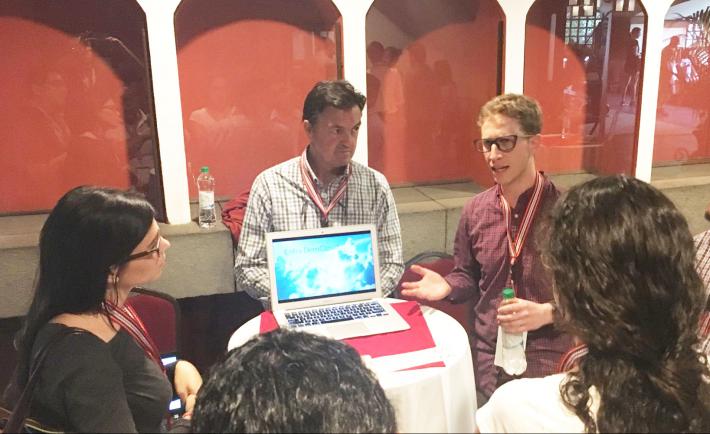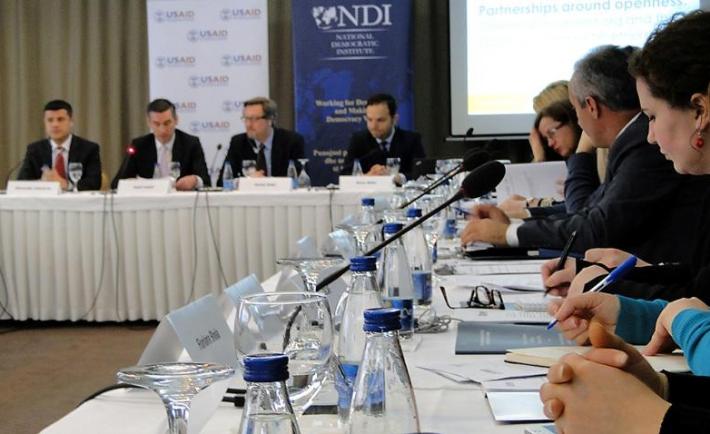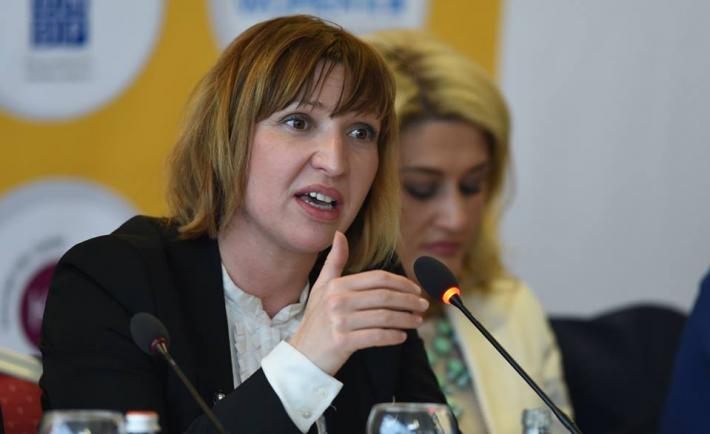The last few months, we here at NDItech – NDI's technology for democracy team – have had the great opportunity to talk civic innovation, transparency and accountability with dozens of civic groups, journalists and government officials through a set of TechCamps and PeaceTech Exchanges. These programs, put on by the State Department and PeaceTech Lab respectively, link technical experts with innovators across the globe to brainstorm, “pitch” and ultimately bring to life smart, contextualized tech solutions to pressing community problems. It’s been a pleasure for us (your bloggers) to be a part of these sessions, which we wanted to share a bit about with you all (our loyal readers).
NDItech Goes to (Tech) Camp
Grounding Theory in Practice: Youth programs in Jordan and Kosovo
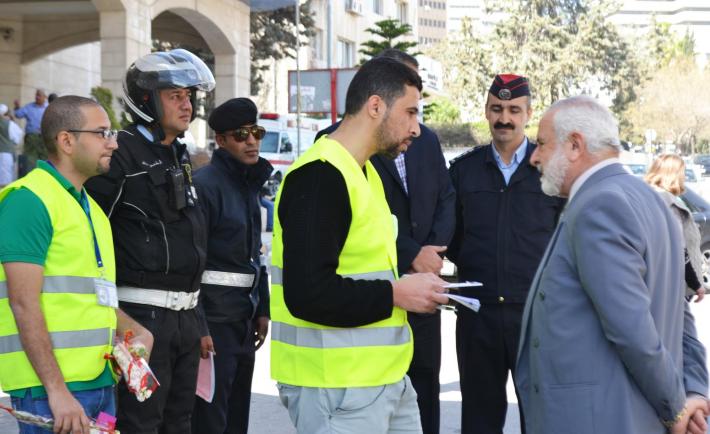
Usharek+ participants in Jordan launch their advocacy campaign with the goal of improving traffic safety.
NDI’s new theory of change unifies important elements of youth political participation programs and depicts how they can interplay to change practices of youth participation. This theory, which I blogged about last month, was not merely academic exercise from the “ivory tower.” It draws on discussions with young politically active women and men across Africa and Latin America, collaborative discussions with democracy and governance practitioners from around the world, and deep reviews of effective youth programs NDI is conducting in Jordan and Kosovo. The Jordan and Kosovo programs show how the theory of change can play out in practice.
Taking the Road Less Traveled: NDI’s Conflict Transformation Program in Kosovo
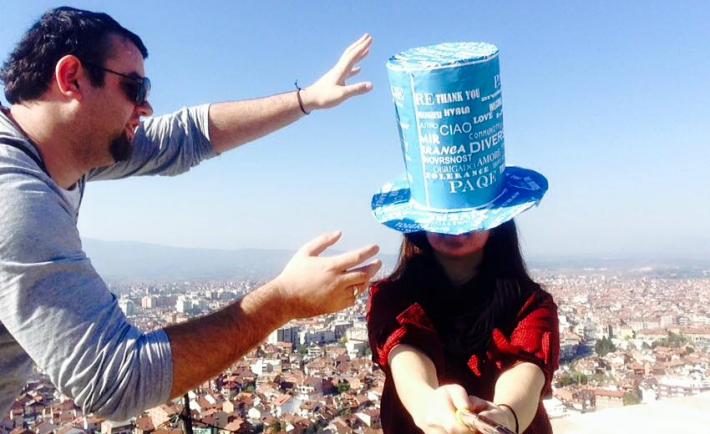
The emerging leaders group 'Diverse Your-Selfie' used this symbol of a hat to promote diversity by taking selfies and posting them to social media networks.
NDI Kosovo recently concluded a more than two-year long program on Conflict Mitigation, aiming -- through its own activities and with the support of its partners -- to cultivate relationships across the country’s divisions, thus easing ethnic tensions in Kosovo. Through the program, more than 600 Kosovars engaged in diverse dynamics across ethnic lines, overcoming their possible post-war fears, prejudices and mistrust, thus establishing rewarding collaboration.
Developing Democracy in Kosovo, Europe’s Youngest Country
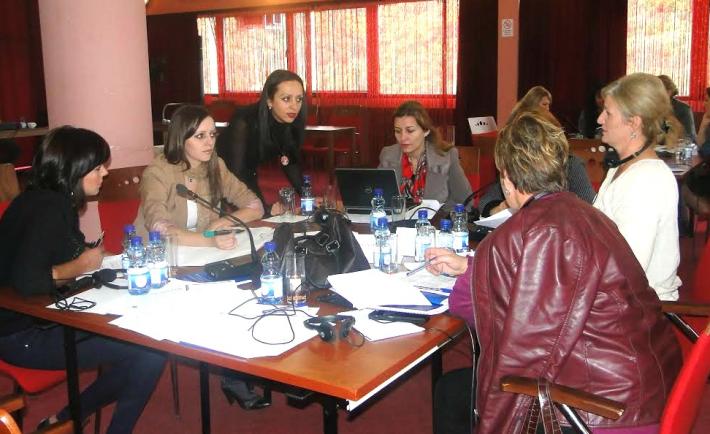
A workshop on Gender Responsive Budgeting, held in October 2012, where women councilors developed an advocacy plan and timeline for their municipality’s priority issue.
Meaningful democracy means the equal participation of women and men in political and public life.
In 1999, just after the war, I found myself back in my hometown, having spent months as a refugee in Macedonia. As Kosovo recovered, the UN and many international organizations were present to help Kosovars build institutions and capacities and to reconcile communities. I started to run the youth center in my hometown, and I had the opportunity to talk one-on-one with young people while I worked there. We were a new generation and we had gone through difficult and different experiences during the conflict, so getting together in this way was a real challenge at first.
Political Parties in Kosovo Should Be the Cornerstone of Democracy, Not a Gimmick.
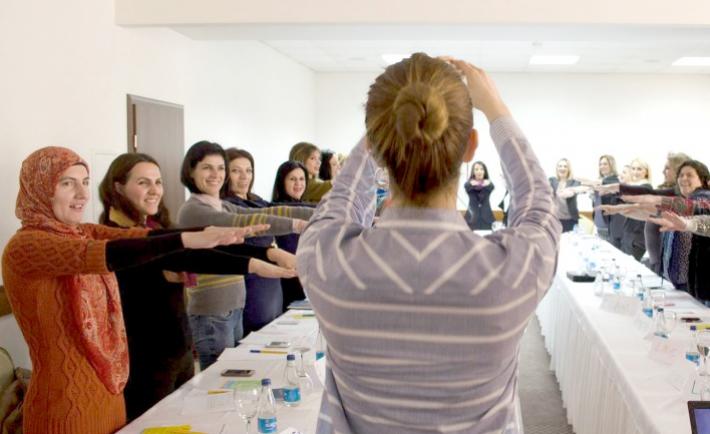
Cross-party training events like this one, part of the Women Political Empowerment Training conducted by NDI, would have a bigger impact if political parties in Kosovo became more inclusive and created a space for women and youth.
In a small country like Kosovo, in order to “get things done,” you need to be affiliated with a political party, understand how to navigate the political system and lobby hard for your cause. None of these requirements would be an issue if ideologies and policies were at the heart of discussion and negotiations. Instead, party affiliation in Kosovo is based on business relationships - not policy - and this political culture undermines internal party democracy.
Grassroots Youth Spark Change in Kosovo
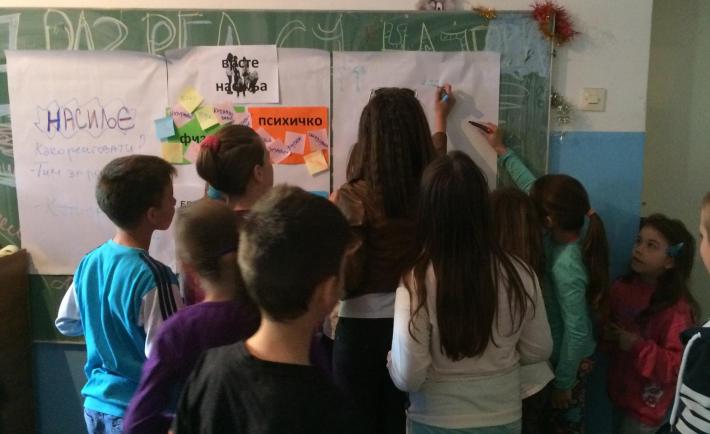
Students in Zvecan, Kosovo, brainstorm ways to stop school bullying, as part of a community initiative started by YLP participants.
Vladimir had not crossed the Mitrovica bridge -- which divides ethnic Serb communities north of the Ibar River from ethnic Albanians to the south -- in three years. But in February last year, Vladimir had a reason to cross the bridge and travel south: the opportunity to attend an NDI training in Gracanica with 19 other minority youth leaders and become a stronger advocate for issues in his community. Vladimir and his colleagues are members of the most recent generation of NDI’s Youth Leadership Program.
Conflict Transformers: How theater is helping heal ethnic tensions 16 years after war in Kosovo
_2.jpg)
An interethnic group of actors trained by NDI in conflict transformation shares war stories from audience members at a Playback Theater performance in Prizren, Kosovo. Credit: Arta Qorri
A young Kosovar Serbian actress sinks to her knees and, stricken with grief, expresses her longing for an uncle who is still “missing” 16 years after Kosovo’s ethnic conflict ended in 1999. The Kosovar Albanian man sitting to her left on stage watches mesmerized. It is his story that the actress is telling, and though he is unable to understand her words, spoken in Serbian, he tells the audience after the performance that she has captured the essence of his grief and pain. Through theater, the actors are retelling the history of violence between ethnic Albanians and Serbs in Kosovo in a new way that encourages empathy and healing. At the end of the evening, which is full of audience stories re-enacted, another audience member stands up and asks the interethnic theater group in front of her, “Where have you been for the last 16 years?”
Kosovo Assembly Endorses the Declaration on Parliamentary Openness
The Declaration on Parliamentary Openness is a call to the world’s parliaments to increase their commitment to citizen engagement in legislative work. Collaboratively drafted by the global parliamentary monitoring community, the declaration has been endorsed by more than 180 civil society organizations (CSOs) in over 80 countries. Increasingly, parliaments are also signing on to the declaration. On May 4, the Assembly of the Republic of Kosovo formally endorsed the declaration, joining a small vanguard of parliaments around the world.
Women Leaders Unite in Kosovo for Week of Women
More than 100 Kosovar women from all sectors of society traveled to Pristina last week for the fourth annual Week of Women (WoW). The weeklong event, supported by NDI, brings together Kosovar women to hone skills and techniques to help them become more effective leaders in their fields.

